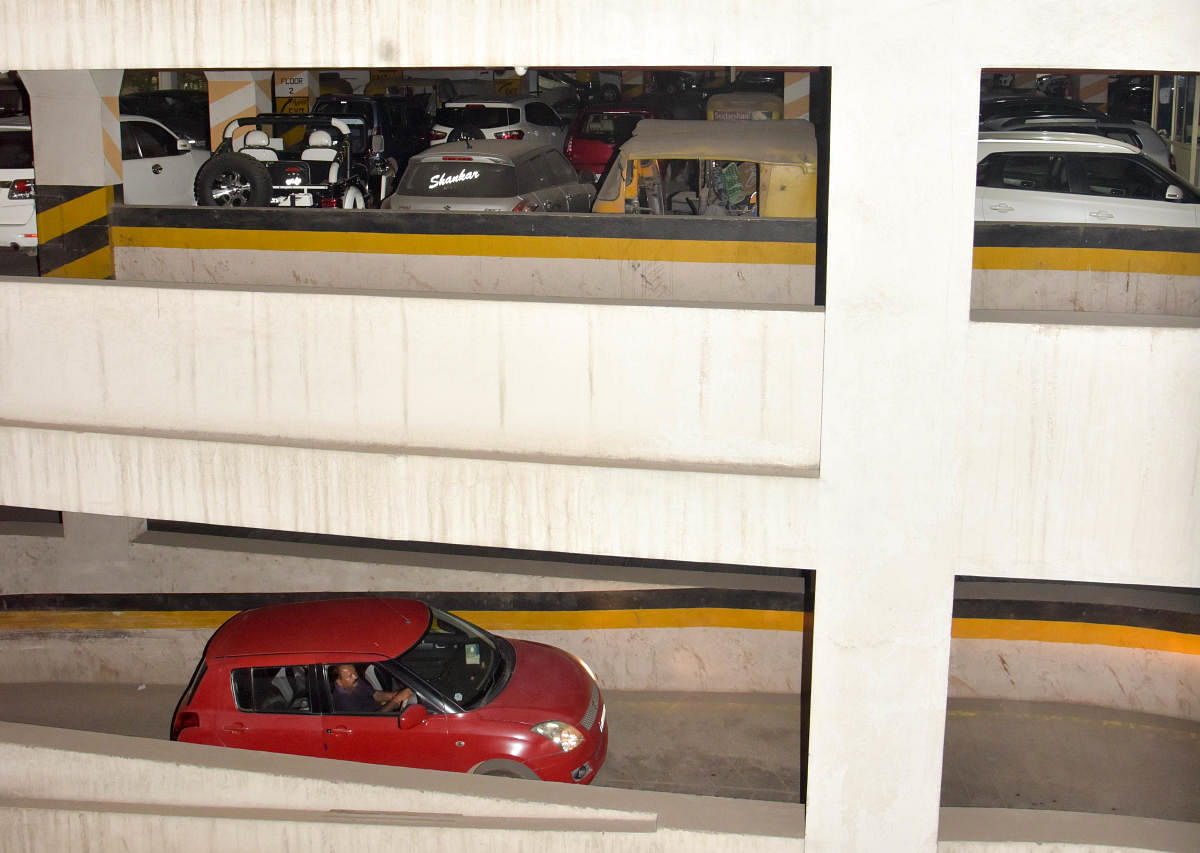
With more than 80 lakh vehicles in the city alone, parking has become a huge hassle. Due to the acute lack of parking space in areas such as Koramangala, Brigade Road, and Malleswaram, people are forced to park miles away from their destination and walk the long distance.
The ongoing Metro construction, multiplicity of street vendors and haphazard parking on narrow lanes have all combined to worsen the already hyper-congested roads.
“Our college does not have parking for vehicles in-campus. So, we have to park down the lane in the neighbourhoods and run away before the residents come and ask us to keep our scooters somewhere else. Sometimes, people park in the narrowest of places and damage other vehicles surrounding it,” says Sabah, a student from Mount Carmel College.
Jayanagar resident, Kavitha Harish suggests: “Offices and large retail stores must allocate parking spaces for both employees and shoppers as well. When they don’t do that, people are forced to park in neighbourhoods, risking vehicle damage and theft.”
But one cannot blame only the corporates and retailers. “Drivers are ignorant about whether vehicles are to be parked in parallel or oblique formation,” notes P S Verghese, a retired pilot.
Shopping malls, he adds, are not supposed to be charging anything for parking. “The public anyway brings them revenue through shopping, dining out or entertainment.”
Many residents attribute the parking problem to poor planning by the authorities. “Parking areas are not mapped out properly. Often, the ‘No Parking’ signboards are missing, and the police end up towing away your vehicle citing parking violations,” notes Hari S, a student.
The city’s parking zones are not designed for handicapped drivers as well. “There must be an interval at every 50th parking spot and it must be reserved for the handicapped. Often, one cannot find a parking slot anywhere near the location where you are heading to.”
There are many citizens who have alternate ideas to resolve at least part of the problem. Suggests a motorist, “The state government should first get to the root of the problem. Considering the huge number of vehicles registered to ply on the city’s roads, the question should be: Do we have enough space to conveniently and safely park them?”
The recommendation is this: The State should train and educate motorists on how to use the limited parking spaces appropriately. This should happen right when the vehicles are registered. Common guidelines could be issued for all to internalise better parking. Automated parking too could be an option.
Usha, a meditation instructor suggests a very comprehensive study of the parking problem in the city taking inputs from all stakeholders. Listening to people who have hands-on experience in ensuring smooth parking options in different locations could work, she feels.
But a lasting solution lies only in reducing the number of private, personal vehicles. Elaborates Kavitha, who believes in sustainable mobility, “To reduce the number of vehicles moving around the city and not finding “smart” parking areas, one can shift back to car-pooling and the odd- even rule of cars moving on road on specific days.”
Verghese brings in the construction angle: “Since Bengaluru is in a constant construction mode, there must be a rule that big trucks loaded with building materials, cement mixer trucks, JCB vehicles etc, be allowed only during the night. This will greatly help decongest the roads, freeing up space for parking.”